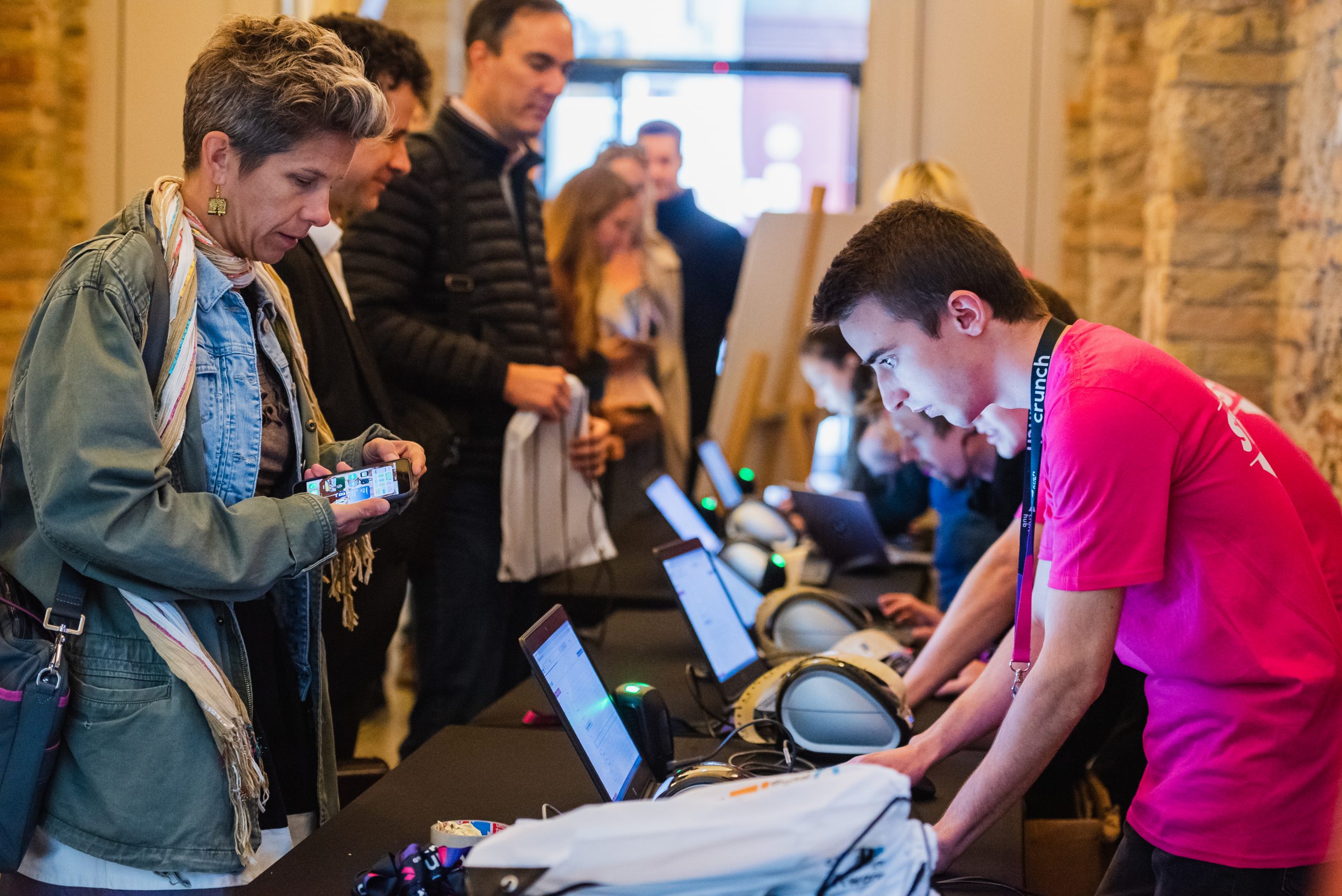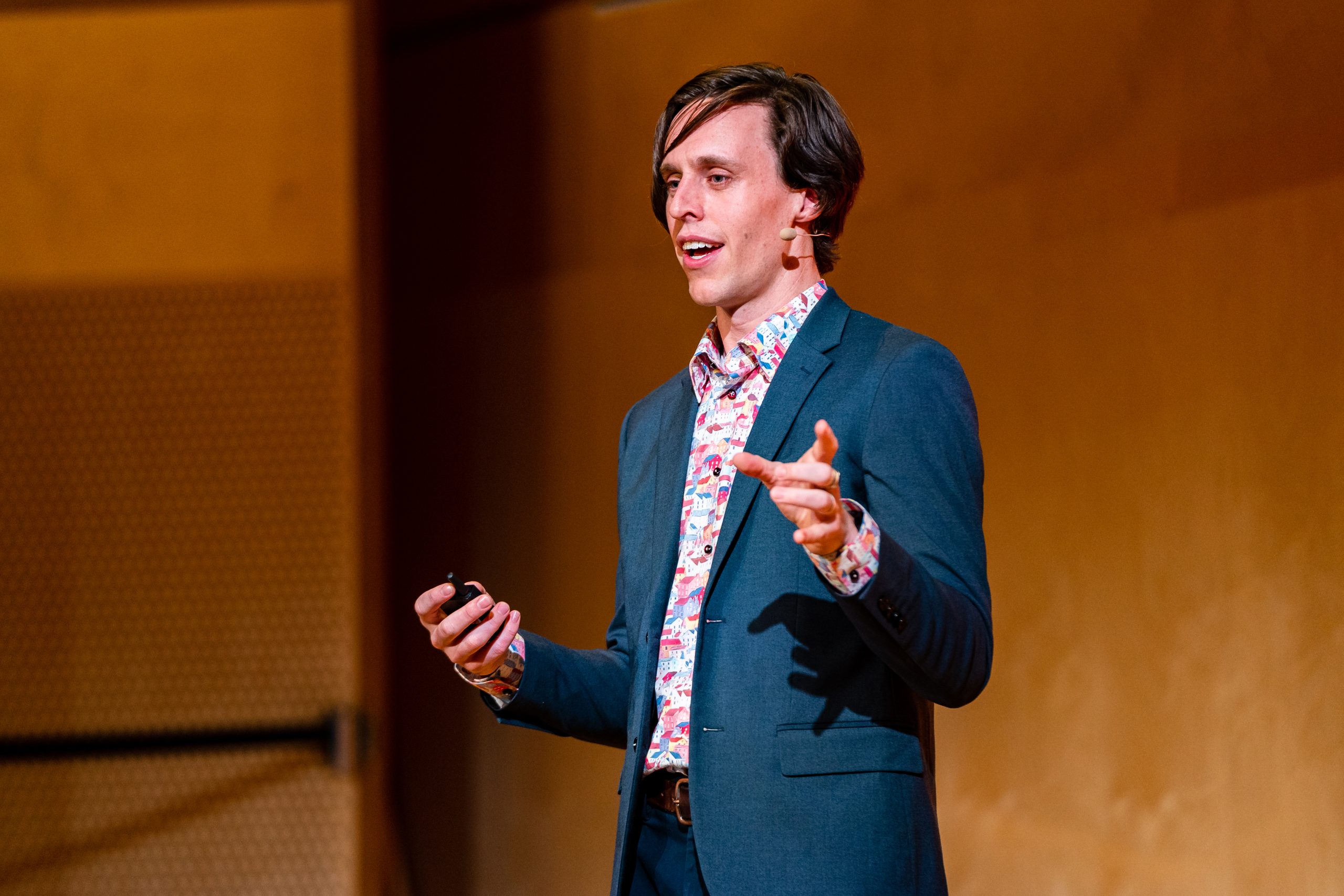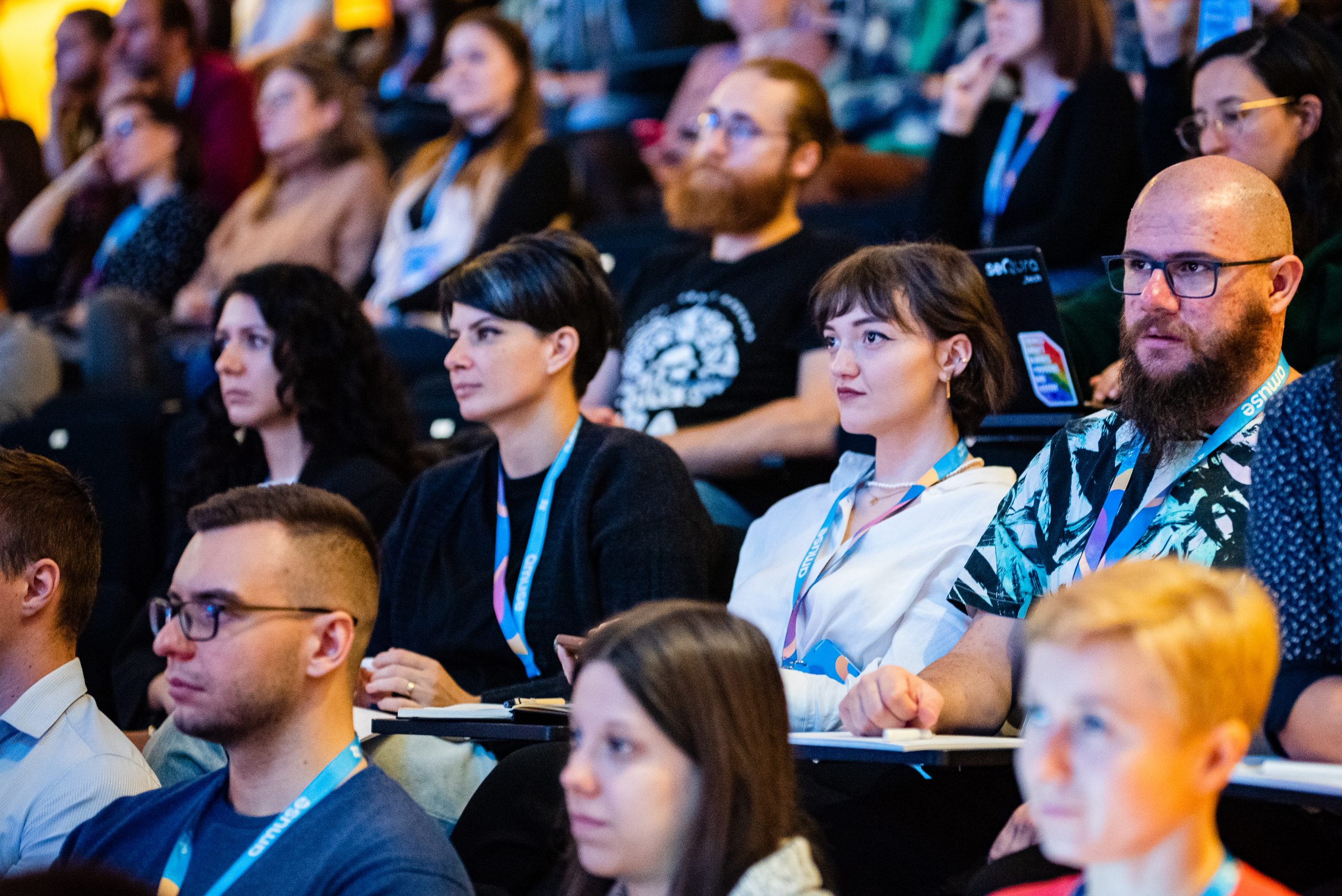The event series of CraftHub attracted nearly 1600 people to Budapest.
How is one of the world’s leading optoelectronics companies using artificial intelligence to pioneer its solutions? What does successful IT product management look like for a start-up and a company with hundreds of employees? How does a user experience specialist find his way to the heart of the consumer? These are some of the questions that the audience of the conference series organized by CraftHub in Budapest could get answers to.

Presentations from Apple, Google and other national and international giants revealed their recipe for success: to put the focus back on the people and society for whom innovations are really made. As for today’s world it requires not only developer knowledge, but also data analytics, empathetic and creative user engagement, and professional IT product management to bridge the gap between the two.
IT professionals who want to be successful in their careers, and create innovations that make a real impact in the world, need to step out of their comfort zone and develop their skills extensively. This is why Prezi and IBM Budapest Lab’s spinoff, the CraftHub team, organized a series of conferences in the Hungarian capital in October, which attracted the attention of the international tech world. More than 600 participants were able to follow the hybrid format presentations seamlessly from the online space, while nearly 1,000 attendees enjoyed the on-site buzz at the Central European University – most of them from the US, Germany and Hungary.
Data has become a key driver for development – let’s use it well!
The week-long knowledge dump kicked off with Crunch Conference on the practical issues of data science, BI (business intelligence) and data engineering, which are becoming increasingly important from a business perspective, followed by the one-day Impact Conference on the basics of successful product management. Amuse Conference concluded the series, covering the most current issues and trends in the field of user experience (UX) from all angles. The event’s great strength was its focus on diversity and networking, which has been one of the main objectives of organizer Crafthub for many years. “Our main aim with our events is to create an international community based on knowledge sharing, where senior and junior professionals, programmers, managers and business leaders can talk to each other in a relaxed setting about their experiences in their work.” says Médea Baccifava, one of the founders of CraftHub, the event’s organizer.
 Daniel Thomason (Google) at Impact Conference
Daniel Thomason (Google) at Impact Conference
Well, this time there was no shortage of useful professional tips and innovative ideas – as well as in the renowned international lineup. Kathleen Maley (Experian) reminded the audience that in most development teams, data analysts are still seen as outsiders whose role is only to validate the effectiveness of their colleagues’ work. The expert pointed out with good practices that big data does contain a lot more useful information than developers think, so it makes sense to involve data analysts much more in the process, who can see the numbers and ask the right questions and point the way if, for example, an application is not performing as expected. Daniel Thomason (Google) presented a ready-to-use model of what we need to focus on as IT product managers in a startup, a small company or even an expanding large enterprise to achieve personal and organizational success. Gadi Weislovits (Wise) gave a thought-provoking presentation on the relationship between market growth and user satisfaction.
Time to bring technology back to the people
The three events, which started with seemingly separate themes, were nicely integrated, as Amuse conference, which closed the week, focused entirely on user experience. We know that this is clearly a key area in the developer world today, which is no wonder, as 75% of people judge the credibility of a website and service provider by how well they like its design, and if any of the features work poorly on mobile, there is no chance of business success.
But the speakers went much deeper than that in understanding how users work, with Rama Gheerawo (Royal College of Art) talking about how we can make a breakthrough impact with our developments by relying on acceptance, empathy, creativity, and pushing rationality to the back burner. What is needed, regardless of age, gender, origin or individual ability, is to engage in dialogue and to truly understand the users for whom real value can be created. The expert presented one of her favorite developments and how it was born: a virtual reality-based programme that allows helpers to place paranoid patients in different situations, giving them an important tool for understanding their condition and for successful therapy.

“We were very pleased to see a strong emphasis on the human element in this year’s presentations: IT professionals are not just professionals, but first and foremost individuals who want to experience success in their work and make a positive difference in the lives of others. This is what should be kept in mind in day-to-day work, so that improvements can be made that create value not just for one company or one person, but for humanity as a whole – and this is the essence of technological innovation. In this context, the presentation by Sebastian Gier (Footprint) was outstanding, sharing the main lessons learned from a series of interviews with 75 designers”, summarizes Médea Baccifava.